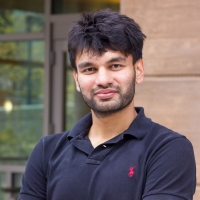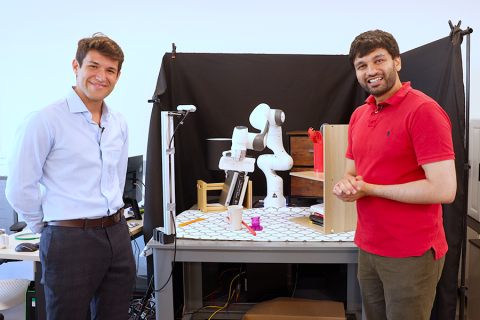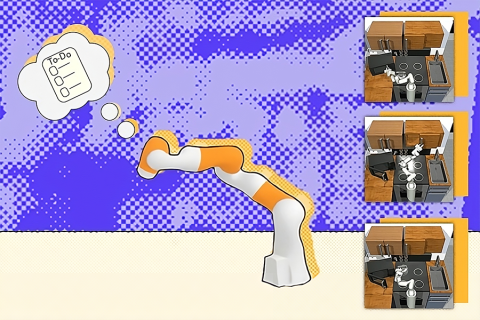Pulkit Agrawal, MIT EECS Associate Professor and CSAIL principal investigator, has received the Toshio Fukuda Young Professional Award from the IEEE/RSJ International Conference on Intelligent Robots and Systems (IROS) for his work in “robot learning, self-supervised and sim-to-real policy learning, agile locomotion, and dexterous manipulation,” according to the organization.
Agrawal is currently focused on building machines with manipulation and locomotion abilities akin to humans. His work is focused on perception, control, robotics, and reinforcement learning. The MIT professor has also helped jumpstart the field of self-supervised robot learning, developing robots that will automatically and continuously learn to develop common sense and physical intuition.
At CSAIL, Agrawal leads the Improbable AI Lab, with the goal of building machines that automatically and continuously learn about their environment. Their group pioneered the use of simulation for training robotic controllers that effectively function in the real world. Such training enabled a quadruped to break speed records and dribble a soccer ball while robustly navigating varied natural terrains, as well as teach a humanoid to move like a human and help them learn advanced general object re-orientation — a well-studied and challenging dexterous manipulation task.
Agrawal’s efforts are helping advance machine intelligence, which could open the door to adaptive household and factory assistants that can handle a variety of objects in different settings. He helped develop “RialTo,” for example, which creates "digital twin" simulations from minimal real-world data captured on users’ phones. This “real-to-sim-to-real” approach could help robots learn to do chores and other laborious tasks on the fly.
More recently, Pulkit’s group is investigating novel designs of robotic hands and wrists that simplify machine-learning-based control for achieving human-like dexterity. His work is laying the foundations for a paradigm change in learning-based robotic manipulation from position to force intelligence, wherein robots think and act in terms of forces for enabling high-speed and reliable dexterous manipulation.
The Young Professional Award is one of many early-career honors for Agrawal, who has also earned the IIT Kanpur Young Alumnus Award and the 2024 IEEE Early Academic Career Award in Robotics and Automation. He’s received multiple best paper awards, the Multidisciplinary University Research Initiative (MURI) award, the Sony Faculty Research Award, the Salesforce Research Award, the Amazon Machine Learning Research Award, the Signatures Fellow Award, the Fulbright Science and Technology Award, the Goldman Sachs Global Leadership Award, the OPJEMS, and the Sridhar Memorial Prize. He co-founded Eka Robotics Inc. and SafelyYou Inc. and advises several startups.



